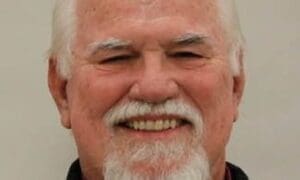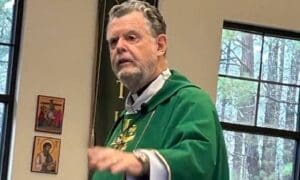What in the world could a declaration by that name have to do with those of us living here on the south side of Atlanta? Well, it simply bears the name of the place where a gathering of well known and respected national Christian leaders met about a year ago to make an important and historic faith declaration, much like the governmental declaration that was made in Philadelphia in 1776.
I’m going to share one section of it here with you. It will take at least two of these articles here in the Citizen to share the whole section, so you’ll see some of it in this issue and some of it the next time my turn to contribute comes around.
What follows is the first part of the section titled “Marriage.”The reason I share it is because I agree with it wholeheartedly and have actually become a “signer”of it, as you can too if you so choose.
The man said, “This is now bone of my bones and flesh of my flesh; she shall be called woman, for she was taken out of man.” For this reason a man will leave his father and mother and be united to his wife, and they will become one flesh. Genesis 2:23-24
This is a profound mystery — but I am talking about Christ and the church. However, each one of you also must love his wife as he loves himself, and the wife must respect her husband. Ephesians 5:32-33
In Scripture, the creation of man and woman, and their one-flesh union as husband and wife, is the crowning achievement of God’s creation. In the transmission of life and the nurturing of children, men and women joined as spouses are given the great honor of being partners with God Himself. Marriage then, is the first institution of human society — indeed it is the institution on which all other human institutions have their foundation. In the Christian tradition we refer to marriage as “holy matrimony” to signal the fact that it is an institution ordained by God, and blessed by Christ in his participation at a wedding in Cana of Galilee. In the Bible, God Himself blesses and holds marriage in the highest esteem.
Vast human experience confirms that marriage is the original and most important institution for sustaining the health, education, and welfare of all persons in a society. Where marriage is honored, and where there is a flourishing marriage culture, everyone benefits — the spouses themselves, their children, the communities and societies in which they live.
Where the marriage culture begins to erode, social pathologies of every sort quickly manifest themselves. Unfortunately, we have witnessed over the course of the past several decades a serious erosion of the marriage culture in our own country. Perhaps the most telling — and alarming — indicator is the out-of-wedlock birth rate. Less than fifty years ago, it was under five percent. Today it is over 40 percent. Our society, and particularly its poorest and most vulnerable sectors, where the out- of-wedlock birth rate is much higher even than the national average, is paying a huge price in delinquency, drug abuse, crime, incarceration, hopelessness, and despair. Other indicators are widespread non-marital sexual cohabitation and a devastatingly high rate of divorce.
We confess with sadness that Christians and our institutions have too often scandalously failed to uphold the institution of marriage and to model for the world the true meaning of marriage. Insofar as we have too easily embraced the culture of divorce and remained silent about social practices that undermine the dignity of marriage we repent, and call upon all Christians to do the same.
To strengthen families, we must stop glamorizing promiscuity and infidelity and restore among our people a sense of the profound beauty, mystery, and holiness of faithful marital love. We must reform ill-advised policies that contribute to the weakening of the institution of marriage, including the discredited idea of unilateral divorce. We must work in the legal, cultural, and religious domains to instill in young people a sound understanding of what marriage is, what it requires, and why it is worth the commitment and sacrifices that faithful spouses make.
The impulse to redefine marriage in order to recognize same-sex and multiple partner relationships is a symptom, rather than the cause, of the erosion of the marriage culture. It reflects a loss of understanding of the meaning of marriage as embodied in our civil and religious law and in the philosophical tradition that contributed to shaping the law.
Yet it is critical that the impulse be resisted, for yielding to it would mean abandoning the possibility of restoring a sound understanding of marriage and, with it, the hope of rebuilding a healthy marriage culture. It would lock into place the false and destructive belief that marriage is all about romance and other adult satisfactions, and not, in any intrinsic way, about procreation and the unique character and value of acts and relationships whose meaning is shaped by their aptness for the generation, promotion and protection of life.
(To be continued.)
Justin Kollmeyer is pastor of Prince of Peace Lutheran Church in Fayetteville. For information, visit www.princeofpeacefayette.com












Leave a Comment
You must be logged in to post a comment.